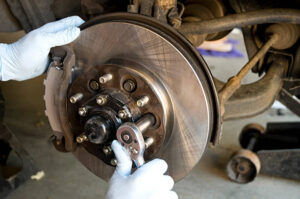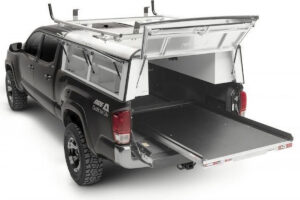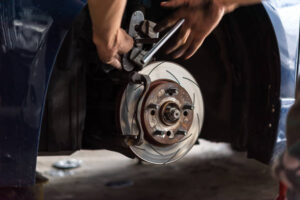
Ensuring Safe Braking: A Guide to Brake Preventive Maintenance
A Guide to Brake
Home » How to Identify Common Brake Problems

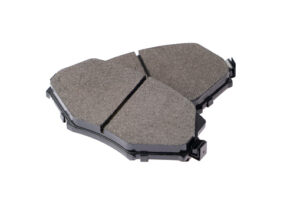
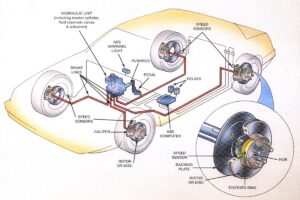
A lot of off-roaders worry that upgrading to bigger tires will affect their ABS system, and cause it to not work as it should. We’re here to tell you that your ABS system will be fine …
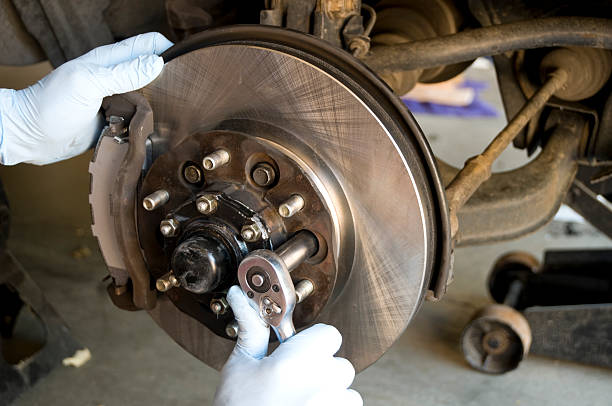
Brakes are the most crucial safety features in your vehicle. It’s important to know when something is wrong with them to address it as soon as possible and to ensure yours and others’ safety. In this article, you will find a guide to help you identify the most common brake problems so that you can take preventive actions in time.
Noises are always a sign that something is wrong with your brakes. Not all noises are a sign of an imminent catastrophic brake failure, but you should be aware of any strange noise coming from your brakes. The type of noise and its pitch will help you to determine what the problem may be.
Noises related to brake pads and rotors are usually made as you hit the brake pedal and the braking system is engaged. On the other hand, noises related to other brake system components are noticeable as the vehicle moves, and the brake pedal is depressed.
These tabs are exposed when the lining compound reaches a certain degree of wear and starts making contact with the rotor, causing a high-pitched metal-on-metal noise as a warning that the brake pads are extremely worn and must be replaced.Once the wear tabs have been exposed, you should replace them immediately to prevent them from damaging the brake rotors and avoid the risk of driving your car with excessively worn brake pads.
It’s important to have your brakes checked if you hear any of these noises, and it’s also important to remember that worn brake pads and rotors can reduce braking performance and increase the risk of accidents.
If you feel your brake pedal spongy or softer than usual, or the pedal goes all the way down without applying any resistance, your brake system may have some of these problems:
To keep it simple, the master cylinder is the component that feeds calipers with pressurized brake fluid every time the brake pedal is pressed. A faulty brake master cylinder will fail to distribute pressure properly, affecting the brake pedal’s feel.
Master cylinders have seals that keep brake fluid in its place; when they fail, the brake cylinder starts losing efficiency until it can completely fail.
Another symptom of a defective master cylinder is brake fluid contamination. As the rubber seals wear out, air, moisture, and contaminants may enter the braking system preventing it from working properly. Besides, a cylinder with damaged seals won’t hold or build enough brake fluid pressure to make the system run effectively.
When the brake fluid level is low, there isn’t enough fluid inside the braking system to build enough pressure. If you feel your brake fluid spongy, check your brake fluid level. You can find how to do it in your vehicle’s user manual.
Brake fluid doesn’t last forever and loses its properties and absorbs moisture as it fades. Moisture can cause corrosion in the brake system and reduce the fluid’s ability to transfer force from the pedal to the brakes. Moisture can cause corrosion and eventually lead to leaks and failures. Also, deteriorated brake fluid can reduce the vehicle’s braking performance and cause a spongy feeling when you press the brake pedal.
Brake fluid should be replaced every two or three years, depending on the type of brake fluid and the vehicle’s driving conditions.
Brake systems are bled to remove air from the brake lines and ensure that all the air is removed from the brake system. Improper bleeding of the brakes causes the pedal to feel spongy because air is more compressible than brake fluid.
A brake light indicator on the dashboard warns you about a problem with the brake system, low brake fluid levels, worn brake pads, or other issues. It’s important to have your vehicle’s brake system inspected as soon as possible when you get this warning.
If you feel vibrations coming from your steering wheel, your brake pedal wobbles or the whole vehicle shakes as you brake, it’s most likely that you have a problem with your brakes.
One of the most common reasons for this behavior is warped, bent, or uneven brake rotors. As you hit the brakes, brake pads are pushed against the rotors; if the rotors’ surface is not perfectly even, they will generate pulses that will translate through the brake fluid to the brake pedal and, depending on factors like speed, how bad the rotors are, etc., it can translate to other components of the vehicle as well.
Another reason for vibrations can be a damaged caliper, which can cause a similar feeling in the steering wheel as you apply the brakes.
It’s interesting to note that shakiness in the front end and steering wheel comes from the front brakes, which are installed in the front wheels, and when it seems that the whole car shakes as you brake, it’s probable that the problem comes from the rear brakes, attached to the rear wheels, which are, of course, far from the front end.
If you keep topping your brake fluid to find your fluid level low after a few days or if you just spot fluid stains (brake fluid is usually red, yellow, or brownish) under your car, mostly near the wheels or under the brake lines, you should have your brakes checked as soon as possible. Some leaks are not visible, as brake fluid can leak inside the master cylinder or in areas where it doesn’t reach the ground. That’s why it’s so important to check your fluid level often. Another indicator of brake fluid leaks is a spongy pedal, as mentioned above.
This problem can be caused by many reasons, for example, uneven front tires, wheel misalignment, and many other things, including problems in your vehicle’s brake system.
A vehicle’s braking system has many components that can fail and cause this. Different problems cause the same effect: uneven braking. If a wheel doesn’t brake at the same rate as the others, the vehicle will pull towards the side where the wheels receive the least braking pressure.
If you experience parking brake issues. For example, it’s not as effective as it used to, you have to pull the handle further than you usually would to keep your vehicle locked, or if your vehicle has electronic parking break and it’s too noisy when you push the e-brake button, your vehicle may have one of these issues:
Have you ever felt a burned clutch smell? Maybe you know the smell of overheated brakes as well. The odor is particularly sharp and unmistakable and is something that nobody would like to smell in a street vehicle. Brakes give off a burning smell when they suffer a lot of stress, making the rotors red hot and burning the brake pads’ compound. Under normal circumstances, this shouldn’t happen, but of course, it’s always better to fry the brakes than to have an accident. Modern compounds have a high tolerance to heat and should endure emergency braking; however, street-use braking fluid is not that resilient, and even though its boiling point is pretty high, it’s probable that it boils after a really hard and prolonged braking.
After an emergency braking, the brake pedal will feel spongy, and the vehicle’s braking capacity will be reduced for at least a while. That’s why after braking hard, particularly if you smell that particular odor, it’s important that you carefully reduce your speed until you find a safe place to stop. Check your parking brake to ensure it’s completely released, and if so, give your brakes a rest and allow them to cool off. Make a visual inspection of your brakes and rotors, and don’t touch anything while it may still be hot. Check your brake fluid reservoir; if everything seems okay, continue your journey slowly and avoid braking hard until you can have your brakes and brake fluid checked. It’s important to stay calm and put safety first.
Another unusual but very dangerous situation which is another reminder that brakes must be regularly checked are locked calipers. In this case, you must also stop immediately, but it’s impossible to continue driving the vehicle with a locked wheel.
It’s important to be aware of these symptoms to help you realize when something is wrong with your brakes. It’s important to check your brakes if you notice any of these symptoms and address any issues. Remember, worn brake pads and rotors can reduce braking performance and increase the risk of accidents.
